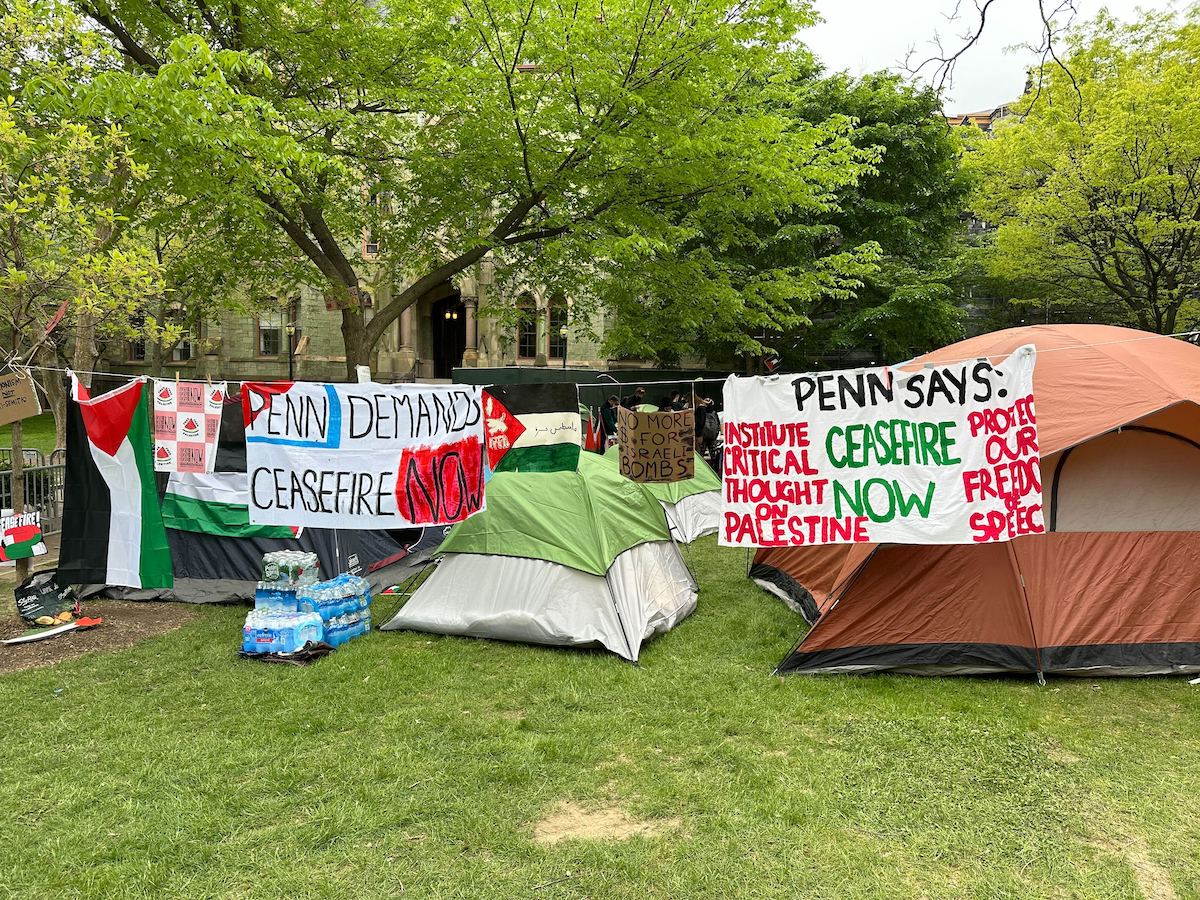World
UNRWA funding must continue to avoid 'collective punishment': Lenarčič
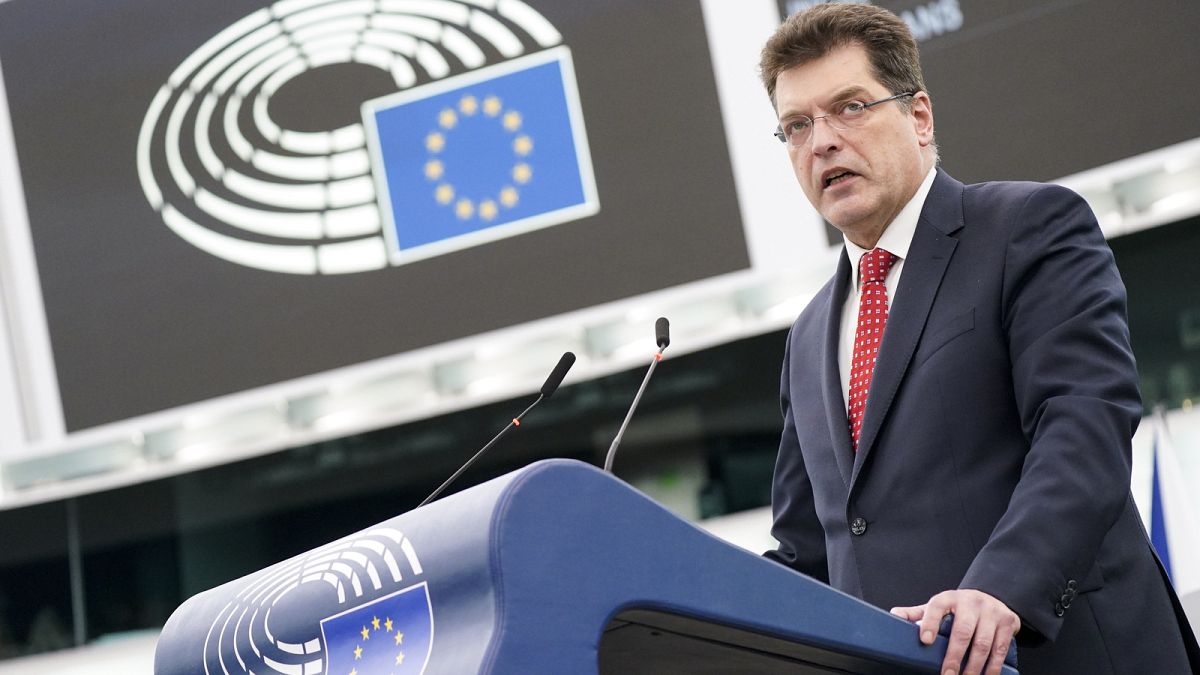
The UN agency for Palestinian refugees (UNRWA) must continue to receive “adequate funding” to avoid a humanitarian disaster in Gaza, the European Commissioner for Crisis Management, Janez Lenarčič, has said.
His warning comes as uncertainty mounts over the future of the EU’s development aid to UNRWA.
The agency is at a breaking point after Western countries suspended donations following allegations twelve of its staff members were involved in Hamas’ October 7 attacks on Israel, which left more than 1,200 Israelis dead and sparked a war in Gaza that has claimed the lives of more than 29,000 Palestinians.
The serious allegations, levelled by Israel on the same day the UN’s top court ordered it to prevent genocide in Gaza, sparked fears of possible infiltration by Hamas, designated a terrorist organisation by the EU, into the Western-funded UN agency.
The European Commission, one of UNRWA’s largest donors, said in January it would **review**its funding in light of the steps taken by the agency to audit its recruitment procedures, bolster its internal oversight mechanisms and vet its 30,000-strong workforce.
It is not yet clear whether the next scheduled EU payment in development aid of €82 million, due this week, will be suspended or not.
But Lenarčič suggested that failing to prop up UNRWA while a humanitarian disaster grips the Gaza Strip would have “catastrophic consequences” and put regional stability at risk.
“In line with EU values – and while we are working constructively with UNRWA on the reinforcement of their internal controls, an audit carried by EU-appointed experts and the vetting system for their staff – it remains of crucial importance to provide UNRWA with adequate funding,” Lenarčič told the European Parliament on Tuesday afternoon.
“We have to be clear, there is simply no substitute for UNRWA,” Lenarčič explained. “Individual accountability must be ensured. But collective punishment cannot be the answer.”
Several nations suspended payments to UNRWA in the wake of the scandal, including Australia, Austria, Canada, Germany, Italy, the Netherlands, the United Kingdom and the United States. Others, like Spain, Ireland and Belgium, continued their support.
While the EU has not suspended deliveries of humanitarian aid, the sudden exodus of Western donors has dealt a devastating blow to the donor-reliant agency, which says its deliveries of humanitarian cargo have halved since January.
Fewer trucks carrying aid have been able to enter Gaza in February compared to January and December, and the UN has warned that pockets of famine are appearing in Gaza. Many humanitarian organisations, including the UN’s World Food Programme, have paused food deliveries to the north of the enclave given that the chaos wrought by the humanitarian crisis has made conditions unsafe for relief workers.
UNRWA’s commissioner general Philippe Lazzarini said earlier this month he hoped the EU would continue to back the agency, and that his conversations with the Commission to safeguard future funding had been “very constructive.”
Josep Borrell, the bloc’s foreign policy chief, also strongly suggested that European assistance would flow as originally anticipated given that UNRWA had launched the investigation that Brussels had called for.
MEPs split on UNRWA
But the EU and its 27 member states have consistently failed to consolidate a common position on the war between Israel and Hamas since it broke out in October, with leaders taking divergent stance on the conflict.
Those rifts were evident during a tense debate between Members of the European Parliament (MEPs) in the plenary chamber in Strasbourg on Tuesday.
Several MEPs, predominantly from left-leaning groups, claimed Israel had failed to provide concrete evidence to back their claims that UNRWA staff had taken part in the October 7th attacks.
Lenarčič also confirmed the Commission had not yet received evidence to back the claims, and that to his knowledge neither had any other donors.
Last Wednesday, the Washington Post published a video that Israel alleges shows a UN relief worker participating in the October 7 attack. But UN leaders have continued to underline that the allegations are yet to be corroborated.
Another camp of right-leaning MEPs fiercely condemned the Commission for injecting cash into an organisation they say is infiltrated by Hamas militants, and denied that its work in Gaza was irreplaceable.
Directly addressing Josep Borrell, Swedish MEP David Lega of the centre-right European People’s Party said: “You’ve said you fully trust you and leadership to get to the bottom of alleged complicity in Hamas terrorism.”
“What will it take for you to understand that your trust is frankly irrelevant if UNRWA loses the trust of parties involved?” he went on, adding that EU aid to Gaza must go to more “responsible, more neutral, more trusted partners.”
“Without UNRWA, Palestinian children will starve,” Malin Björk, from The Left, responded.
“How do we distinguish between different human lives? Why is a Palestinian life not worth anything?” she asked.
Barry Andrews, an Irish lawmaker from the Renew Europe group, called on member states to make decisions “not based on punitive political decisions but on evidence” and on the Commission to restore its payments to support the “irreplaceable and heroic work of UNRWA.”

World
Israeli strikes kill at least 40 Palestinians in Gaza, as ceasefire talks begin

World
Mexico takes Ecuador to top UN court over embassy raid in Quito
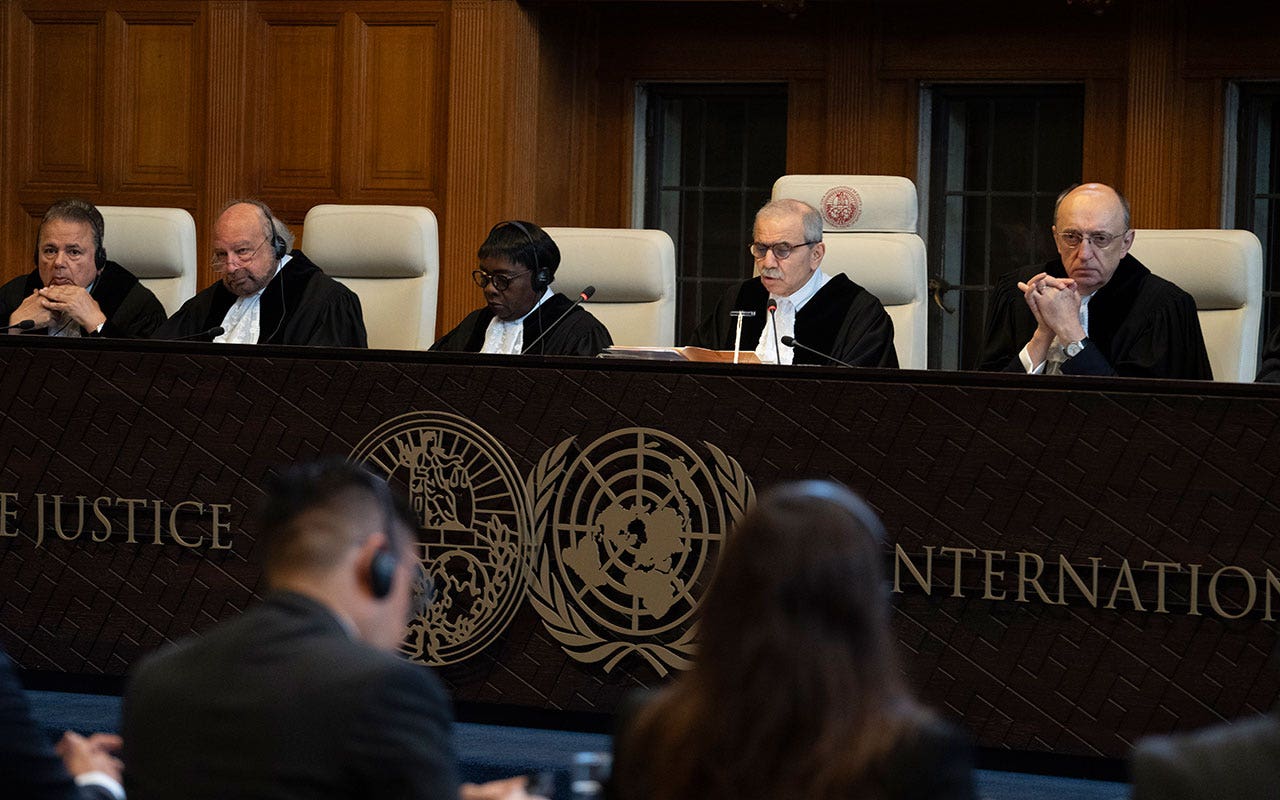
- Mexico has accused Ecuador of violating international law by storming the Mexican Embassy in Quito.
- Tensions between Mexico and Ecuador escalated following the raid, which occurred after Mexico granted asylum to Jorge Glas, a convicted criminal.
- Latin American leaders criticized the raid as a breach of the Vienna Convention on Diplomatic Relations.
Mexico took Ecuador to the top U.N. court on Tuesday, accusing the nation of violating international law by storming the Mexican Embassy in Quito to arrest a former vice president who had just been granted asylum by Mexico.
The April 5 raid, hours after Mexico granted asylum to former Vice President Jorge Glas, spiked tensions that had been brewing between the two countries since Glas, a convicted criminal and fugitive, took refuge at the embassy in December.
Leaders across Latin America condemned the raid as a blatant violation of the Vienna Convention on Diplomatic Relations.
MEXICO WANTS UN TO SUSPEND ECUADOR OVER ITS POLICE RAID ON THE MEXICAN EMBASSY IN QUITO
Ecuador said Glas was wanted on corruption convictions and not for political reasons, and has argued that Mexico granting asylum to a convicted criminal was itself a violation of the Vienna convention.
Judge Nawaf Salam, second right, presides over the International Court of Justice in The Hague, Netherlands, on April 30, 2024, where Mexico took Ecuador to the United Nations’ top court. (AP Photo/Peter Dejong)
Two mornings of preliminary hearings at the International Court of Justice are focused on Mexico’s request for interim orders known as provisional measures to be put in force while the case progresses through the court — a process likely to take many months.
Among the measures Mexico is seeking are for the world court to order Ecuador to take “appropriate and immediate steps to provide full protection and security of diplomatic premises” and prevent any further intrusions. It also wants Ecuador to let Mexico clear its diplomatic premises and the homes of its diplomats in the country.
In its case filed April 11, Mexico also asked the court to award reparation and suspend Ecuador from the United Nations.
On Monday, Ecuador also filed a case at the International Court of Justice, accusing Mexico of using its embassy to “shield Mr. Glas from enforcement by Ecuador of its criminal law” and arguing that the actions “constituted, among other things, a blatant misuse of the premises of a diplomatic mission.”
It asked the court to rule that Mexico’s actions breached a number of international conventions. No date was immediately set for hearings in the case filed by Ecuador.
World
‘Divest from Israel’: Decoding the Gaza protest call shaking US campuses
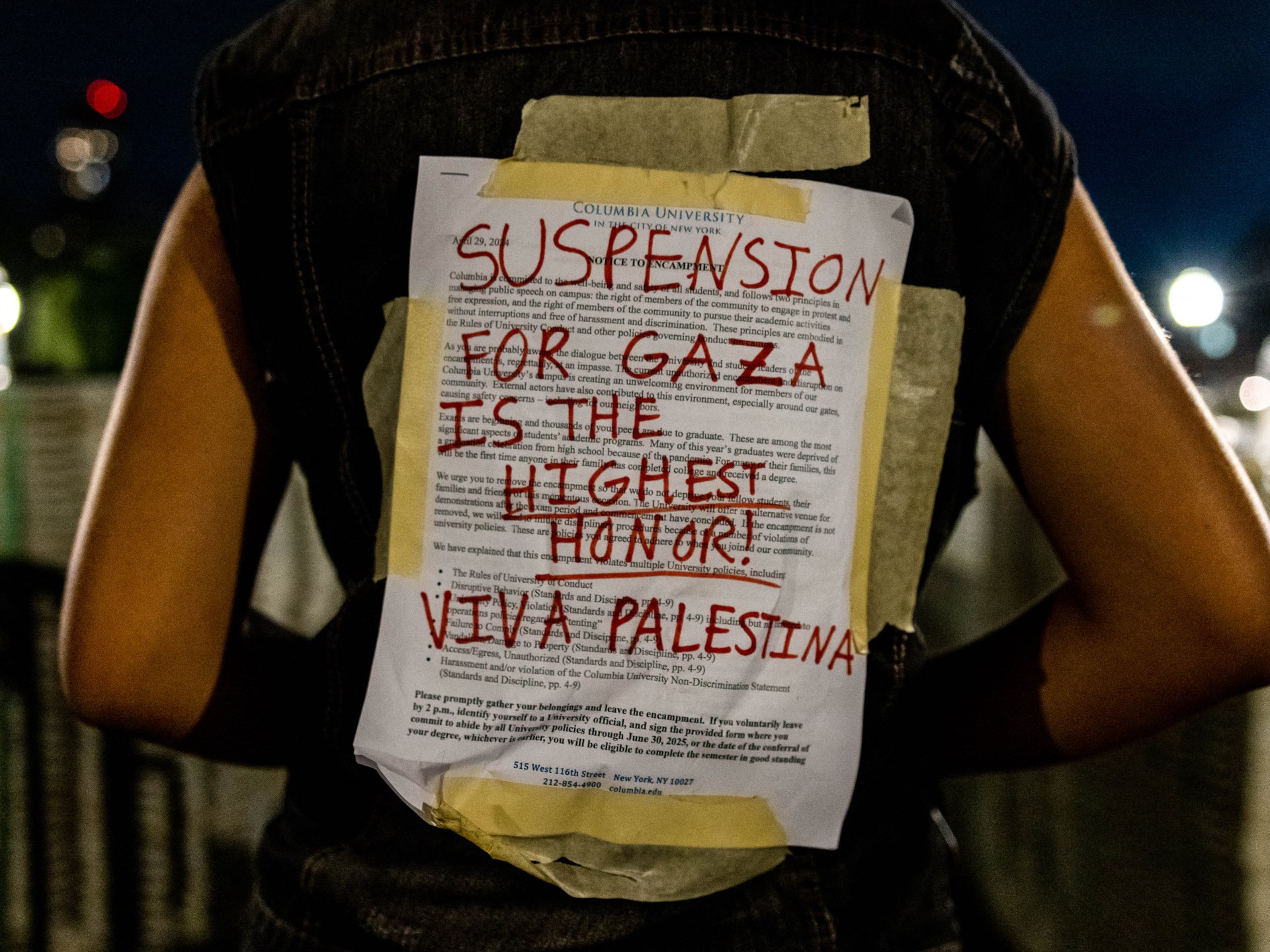
University students are facing threats of arrest or suspension as pro-Palestine protests are burgeoning across campuses in the United States. Students are expressing solidarity with Palestinians in the Gaza Strip, where more than 34,000 people have been killed in Israel’s war of the enclave since October.
Students are calling on their universities to “disclose and divest” their investments in companies and organisations linked to Israel and its war on Gaza.
On Monday, the president of Columbia University, Nemat “Minouche” Shafik, released a statement asserting that Columbia will “not divest from Israel”, prompting protesters to occupy a university building early on Tuesday.
So what exactly is divestment and how do the students want their universities to divest? Here’s more:
What does divestment mean?
Divestment is the process through which an organisation sells off its shares, assets or other investments for political, ethical or financial reasons, according to the Cornell Law School website. In the case of a university, to divest would mean to pull out of investments in certain companies made with money from the university’s endowment fund.
The demand for divestment is not new in the movement against Israel’s occupation of Palestine. In fact, divestment is central to the Boycott, Divestment and Sanctions (BDS) movement, an international effort calling for the boycott of companies accused of being complicit in the occupation of the Palestinian territory, the war on Gaza and violating international law.
What are the students’ divestment demands?
- The protesters at Columbia University, who began building encampments on campus on April 17, are calling for Columbia to divest from corporations that they believe profit from Israel’s war on Gaza.
- Protesters at Columbia passed around a leaflet during admitted students weekend on April 20 and 21 listing the names of some of these corporations – Lockheed Martin, HEICO, BlackRock, Google and Microsoft – Caroline Anne Bissonnette, a journalism student at Columbia who has been covering the protests since they started, told Al Jazeera.
- The New York University (NYU) Alumni for Palestine website calls on NYU to “terminate all vendor contracts with companies playing active roles in the military occupation in Palestine and ongoing genocide in Gaza, namely Cisco, Lockheed Martin, Caterpillar and General Electric”.
- Students at different US universities are calling for greater transparency about their institutions’ investments. A student who is part of the encampments at Tufts University outside Boston told Al Jazeera that one of the “biggest demands of the students” is for the university to disclose its investments.
Why have these companies been named?
The NYU Alumni for Palestine group cited investigations published by the Economic Activism Program of the American Friends Service Committee (AFSC), a Quaker organisation that promotes lasting peace with justice, which names four specific companies.
An investigation of the US-based technology company Cisco revealed that it had established a long-term partnership with Israel in 2018 to develop government-subsidised co-working hubs to help integrate small towns and remote regions to the Israeli high-tech industry. Some of these hubs have been at least partially established in “occupied Palestine and Syria”. Israel’s occupation of the West Bank (Palestine) and the Golan Heights (Syria) is viewed as illegal under international law by most countries.
Maryland-headquartered Lockheed Martin is the world’s largest military company, and an AFSC investigation found that it supplies the Israeli government with weapons. Additionally, the weapons are sometimes “gifted to Israel through the US government’s Foreign Military Financing program”, the investigation found.
Equipment made by US bulldozer manufacturer Caterpillar has also been gifted to Israel through the US financing programme. The Israeli military routinely uses Caterpillar’s D9 bulldozers to demolish Palestinian properties, the AFSC found.
It added that engines and electric power and mechanical systems of the Boston-based General Electric are integrated into the Israeli military’s fighter jets, attack helicopters and surveillance aircraft.
What impact can divestment have?
“Divestment is really hard to do,” Christopher Marsicano, an assistant professor of educational studies at Davidson College in North Carolina who researched the impact of divestment from fossil fuels on university endowments, told Al Jazeera. It is much easier to divest if you have a very small stake in a company, he explained.
He said that while divestment will probably not have much of an economic impact on either university endowments or the Israeli economy, the political impact could be more significant. “Israeli Prime Minister [Benjamin] Netanyahu has already mentioned student protests at American universities publicly. It is clear that these protests have captured the attention of the Israeli government and are putting some pressure on stakeholders to support a ceasefire,” Marsicano said.
How easy is it to divest?
It could in fact be quite difficult for most universities managing large endowment funds to divest from all the companies that do business with Israel and weapons manufacturers. Marsicano explained that university endowment fund managers at most US colleges are “doing what most Americans who have a retirement plan are doing. They’re investing in index funds and private equity.”
Index funds offer investors exposure to all the companies listed on one specific index of shares. A fund tracking the FTSE 100, for example, holds shares in all 100 of the largest companies listed on the London Stock Exchange. Investors in the tracker fund cannot pick and choose which shares to hold. Tracker funds are a popular form of investment for large institutional pension or endowment funds because they provide a good way of diversifying holdings and, therefore, reducing risk.
Furthermore, as companies’ share prices rise and fall, so do their market capitalisations, the value of all of their stocks. That means companies can drop in and out of different indices. It is, therefore, tricky for investors to screen out specific companies.
Can it be economically beneficial to divest?
Not necessarily. The concept of ethical investing – choosing only companies that behave ethically or screening out companies that do not – is no guarantee of good investment returns, Marsicano said. While proponents of divestment say “investing in opportunities that do good in the world will also lead to good investment returns, endowment managers aren’t so sure”, he added.
“What our work showed with fossil fuels [was] that at worst there are negligible effects to the endowment and at best there are positive returns due to divestment. If that world comes, you might see endowment managers make the decision to divest,” Marsicano said.
Will US universities divest from Israel?
Shafik’s statement on Monday indicated that Columbia would not be divesting any part of its $13.64bn endowment fund.
Shafik added, however, that Columbia has offered to develop an “expedited timeline for review of new proposals from the students by the Advisory Committee for Socially Responsible Investing, the body that considers divestment matters”.
Additionally, Shafik said, Columbia is offering more transparency about investments by allowing students to access a list of Columbia’s direct investment holdings, those not held via a tracker or other form of investment fund. Columbia has also offered to update that list more frequently.
However, in a statement posted to X on Monday, Columbia Students for Justice in Palestine claimed the direct investments account for “a mere 6.12 percent of Columbia’s $784m publicly traded investments”. The statement called on Columbia to divest from weapons manufacturers that “profit off the thousands of bombs that have decimated Gaza”.
NYU’s student newspaper, Washington Square News, reported that NYU spokesperson John Beckman said the university is not divesting because it is trying to maximise returns on its endowment to “help the university fulfil its research and educational mission”. Beckman added that NYU’s endowment, valued at $5.9bn, is smaller than that of its peers.
The endowment fund for Northwestern University in Illinois is valued at $14.4bn while Yale University’s endowment is valued at $40.7bn.
Students made efforts to persuade NYU to divest from companies including “GE, Lockheed Martin, Caterpillar and Boeing because they do business with Israel” in 2018, according to a statement released by Beckman in December 2018. “The University opposes this proposal,” the statement read, adding: “It is at odds with the Trustees’ well understood position that the endowment should not be used for making political statements.”
The 2018 statement also said divestment would be an operational challenge because NYU’s endowment assets “are invested through independent financial managers who operate funds in which our assets are co-mingled with others. NYU cannot unilaterally direct those fund managers not to select certain companies’ stock.”
Besides divestment, what do the students want?
Students in the US and abroad are also calling on their institutions to boycott Israeli universities and exchange programmes, to have open dialogue about the war on Gaza, to condemn the killing of Palestinian civilians and to protect students, faculty and staff who are speaking up for Palestine from harassment and censorship.
What’s the latest on the college protests for Gaza?
Columbia issued a deadline on Monday for students to dismantle the encampments of about 120 tents by 2pm (18:00 GMT). They were also asked students to sign a form guaranteeing they would abide by university rules through June 2025. Students who refuse to do this could be suspended pending further investigation.
Columbia Students for Justice in Palestine released a statement on X about four hours before the deadline saying, “Columbia University illegally fabricates a ‘state of emergency’ to mass suspend, expel, and evict hundreds of peaceful protestors by 2 PM today.” The statement added that the protesters had informed the university they were prepared to “escalate their direct actions if Columbia does not adopt basic standards of conduct for negotiations”.
On Tuesday morning after Columbia’s refusal to divest, protesters occupied the university’s Hamilton Hall academic building, in a move reminiscent of the 1968 protests in Columbia against the Vietnam War. They renamed the building Hind’s Hall after Hind Rajab, a six-year-old girl killed in Gaza.
hamilton hall occupied by columbia students, renamed Hind’s Hall in honor of our martyr Hind Rajab. pic.twitter.com/Rwlu9mSwYn
— maryam مريم🇵🇸🍁 (@bluepashminas) April 30, 2024
Another statement released by Columbia Students for Justice in Palestine on X on Tuesday said the protesters intend to occupy the hall until Columbia concedes to the protesters’ demands, including divestment. The statement warned Columbia against bringing armed soldiers or police officers on campus. “Students’ blood will be on your hands,” it said.
PRESS RELEASE by @ColumbiaBDS about the occupation of Hamilton Hall. An autonomous group of students reclaimed the building as “Hind’s Hall” in honor of Hind Rajab, a six year old girl from Gaza. We continue to stand in solidarity with Palestinian Liberation. ❤️🔥 pic.twitter.com/LIm8cScPpD
— Columbia Students for Justice in Palestine (@ColumbiaSJP) April 30, 2024
-

 Education1 week ago
Education1 week agoVideo: Dozens of Yale Students Arrested as Campus Protests Spread
-

 World1 week ago
World1 week agoShipping firms plead for UN help amid escalating Middle East conflict
-

 World1 week ago
World1 week agoEU sanctions extremist Israeli settlers over violence in the West Bank
-

 Politics1 week ago
Politics1 week ago'Nothing more backwards' than US funding Ukraine border security but not our own, conservatives say
-

 Politics1 week ago
Politics1 week agoDemocrats hold major 2024 advantage as House Republicans face further chaos, division
-

 Politics1 week ago
Politics1 week agoFetterman hammers 'a–hole' anti-Israel protesters, slams own party for response to Iranian attack: 'Crazy'
-

 World1 week ago
World1 week agoPeriod poverty still a problem within the EU despite tax breaks
-
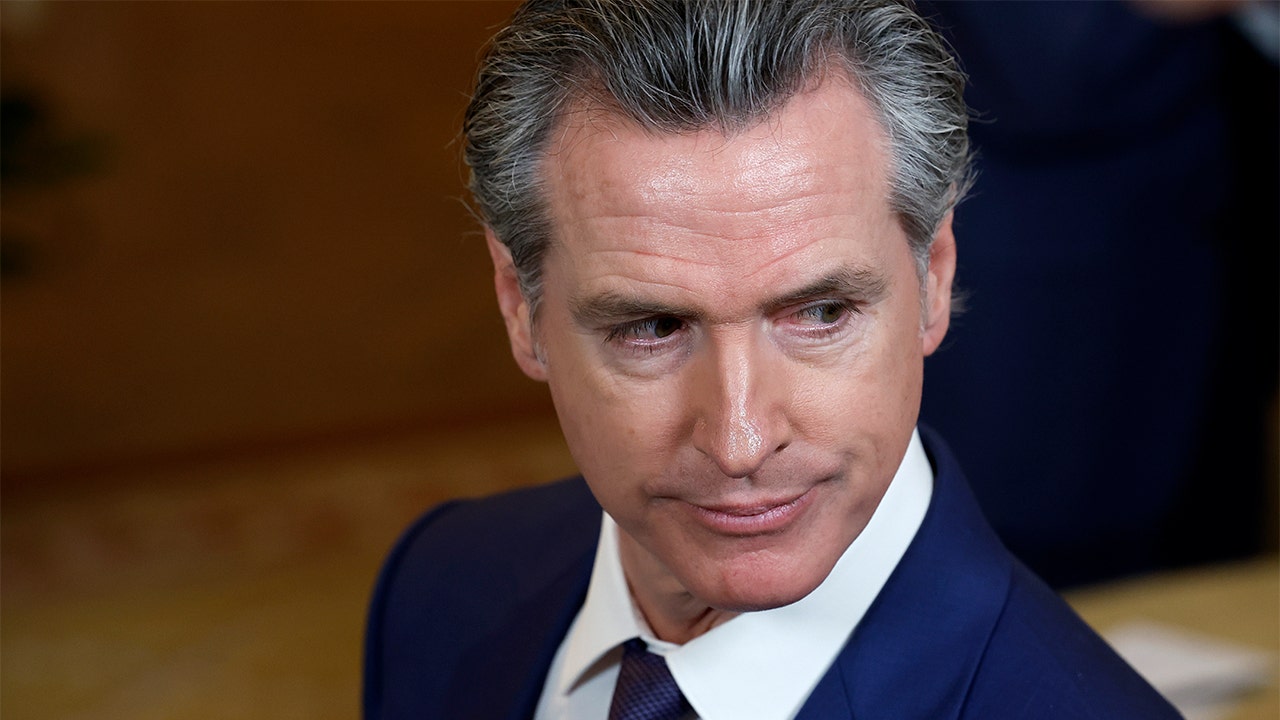
 Politics1 week ago
Politics1 week agoA battle over 100 words: Judge tentatively siding with California AG over students' gender identification


